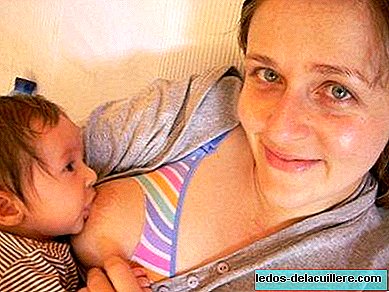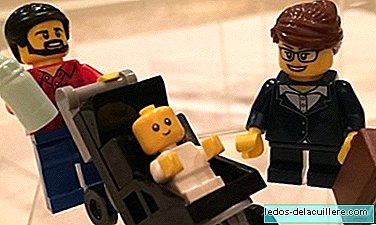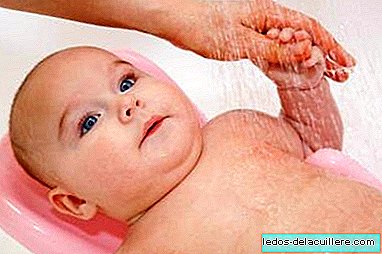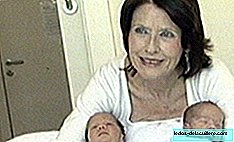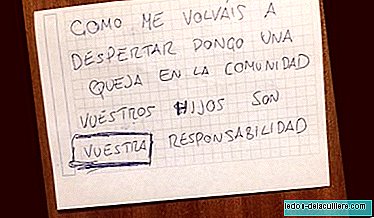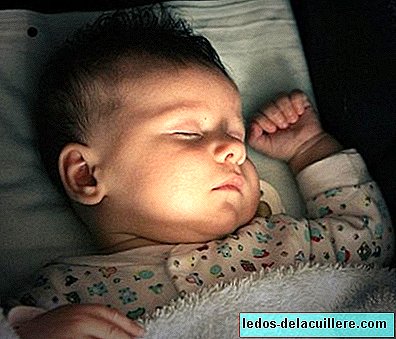
Giving cereal porridge at night or adding a few buckets in the bottle is a widespread practice nowadays and often advised by some pediatricians who have the goal of making children sleep longer (colloquially it is said "to hold on longer" ).
The truth is that there are several studies and several reasons that they advise against giving cereals before sleeping:
There is no reliable evidence that it is really effective
Studies have been conducted comparing babies who received cereals before bedtime and babies who did not receive them without finding differences in their sleep patterns.
In a study conducted in 1989, for example, they studied 106 children between 5 weeks and 4 months (I say it is from the year 89, now such a study would not be done at this age) to those who divided into two groups. Some took cereals before bed and others did not.
The intention was to get them to sleep 8 hours in a row, but seeing that none did they changed the goal for 6 hours in a row. The results were the same. No children got to sleep 6 hours in a row nor were there differences between children who took cereals and those who did not.
In another 1996 study, children between 4 and 6 months who drank artificial milk with cereals and children of the same age who drank artificial milk were studied.
The results were that there were no differences in sleep or children's weight, although there was a significant elevation of parathormone, probably caused by a calcium deficit in children taking cereals.
Digestions may become too "heavy"
Giving cereals at night to children and trying to eat a little more so they spend more hours without demanding food causes many children to finish sleeping worse because the digestion becomes more complicated and "heavy", for being too full (something like a Christmas dinner every night) and for being a hypercaloric dinner just before the time when less calories need: the night.
Early introduction of complementary foods is not recommended
Many mothers start giving cereal porridge at 4 months for this reason (or for fattening). Whenever possible, a baby should be fed only and exclusively with milk up to six months.

Deep sleep is associated with Sudden Infant Death Syndrome
Babies who sleep longer and deeper may be more vulnerable. The awakenings in babies are normal, habitual and a protective element against the SMSL. It is, in fact, the natural way of sleeping of babies. Inducing deep sleep in babies can be dangerous and in a way is going unnatural.
(In case of clarification, the elderly sleep little and very superficially. Due to their age and their many pathologies, sleeping deeply for a long time would be a risk to their lives).
It involves an excess of calories for the baby, who loses control of them
Babies have the ability to manage their needs based on what they need at all times. A bottle or a semi-liquid cereal porridge it involves taking extra calories without really needing them.
With the rates of childhood obesity that we have in our country it makes no sense to accustom children to eat foods with more calorie content before bedtime (later in adulthood try to change habits explaining that at night you have to make light meals ).
Montignac, the person in charge of the well-known Montignac diet, criticizes this measure by saying that it is a porridge based on “dairy flours, unnecessary for growth and with the intention of anesthetizing you, just so you don't wake up at night and let your parents sleep ”.
But nevertheless…
In my daily practice I have met some mothers who claim that their children do sleep more when they are given cereals at night (although I have also met some mothers who have tried unsuccessfully).
Personally I have the impression that it works with some (few) children, basically because contrary to what Dr. House says ("patients always lie"), I like to believe that mothers tell me the truth.
However, the theory makes me think that I am wrong to believe that it could work with some children: if we consider that many awakenings come from phase changes in sleep and not the real need to eat, give them or not cereals should not mean a great change in the sleep pattern of babies, as stated in the studies mentioned.
On the other hand, if giving children cereals at night would work, behavioral methods to help children sleep would not exist, nor would their authors continue to sell thousands of books. The method to help children sleep would not be to leave them alone (usually crying), but to give them cereals, I say.


